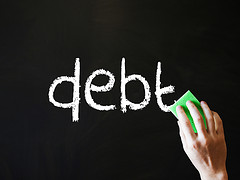Should I Declare Myself Bankrupt?
Usually the last resort for any person up to their ears in debt, bankruptcy is fairly unpleasant. Anyone could potentially find themselves in this situation; whether a creditor has filed for forced bankruptcy or you’ve applied for it yourself. However, it may not be your only option.
Obviously, the appeal of bankruptcy is that you can make a fresh start with your finances, but it’s a double-edged sword. You’ll have to give up any equity which has any value; this’ll include your property and your personal possessions. If you run a business, you’ll have to shut it down and sack your entire workforce. As you can see, bankruptcy not only affects you, but your friends and family too.
It’s true that bankruptcy makes sense for many people, but it’s a difficult procedure to swallow. Your bankruptcy will last for approximately a year, and at the end of this term, most of your debts will be cancelled. An Official Receiver will investigate you to discover the cause of your financial disaster and your assets will be distributed evenly between creditors.
If the Official Receiver deems it necessary, your family or your employer will be summoned to court to help the investigation.
Further Ramifications
You’ve declared yourself bankrupt. From now onwards, you must tell lenders that you’re an un-discharged bankrupt, if you apply for credit in excess of £500.
Your employment will also be affected. Here on out, you’re unable to be a part of the Police Force, Armed Forces, Local Council, or Governmental Offices. Being an accountant or an owner of a business is off-limits too. Prospective employers will do a background check, and this could affect your ability to secure a job or become promoted.
The bankruptcy will remain on your credit history for up to six years and your name will be published in a newspaper under bankruptcy notices. You’ll also have your name on the Insolvency Register.
Assets
You may be wondering if any of your assets are protected from the bankruptcy charge. Equipment you need for work will remain with you, as this is your means of livelihood and it’s unlawful to take it away. Your Official Receiver will also not literally take the clothing off your back. You and your family are entitled to keep their clothes and bed linen. Some of your furniture will also remain.
If you’re employed, you’ll be asked to continue regular payments for up to three years, depending on what the Official Receiver deems ‘affordable.’
Are There Alternatives To Bankruptcy?
Find out more at IVA-expert, by calculating your debt. You may be able to avoid bankruptcy by taking out an IVA or creating a debt management sheet. Always seek advice before you start considering a drastic, financial move.
Individual Voluntary Arrangements could help you pay off your debt after five years and you can keep your house. All it takes is monthly repayments for a fixed term, and after that your debt is written-off.
Related articles
- Five Ways to Eliminate Student Debt (savealittlemoney.com)
- How to Stay Clear of Debt (savealittlemoney.com)
- How Seniors Can Learn to Cope with Debt (50plusfinance.com)
- Get Help to Get out of Debt (50plusfinance.com)

Category: Debt






